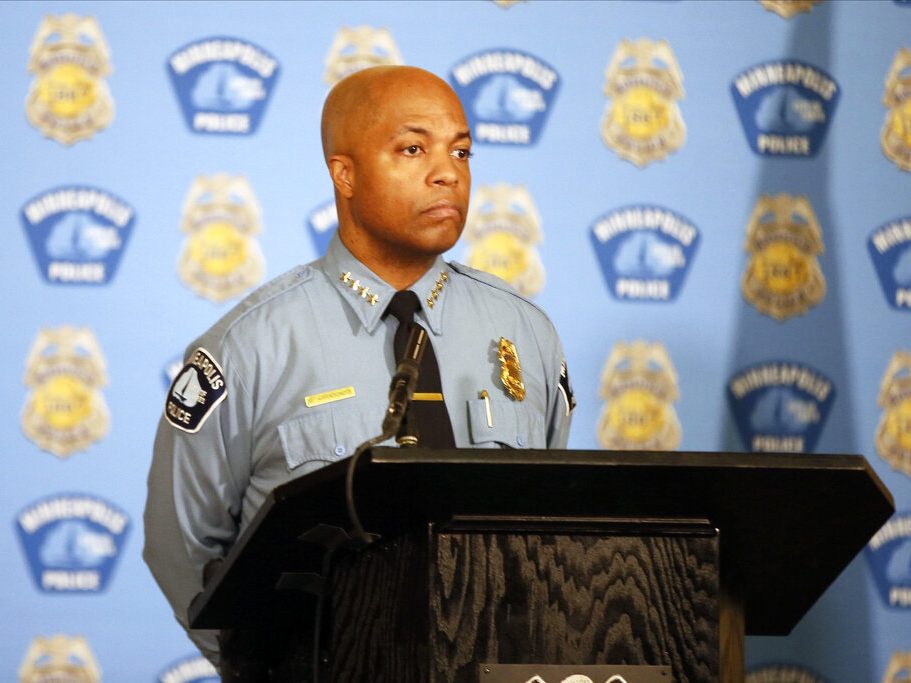
Minneapolis Police Chief Medaria Arradondo listens to a question from the media where he discussed police reforms, Wednesday, June 10, 2020 in Minneapolis. Arradondo and Minneapolis Mayor Jacob Frey said Monday that officers will no longer be allowed to turn off their body cameras to talk privately when they respond to calls, one of several changes implemented following George Floyd’s death in police custody. (AP Photo/Jim Mone)
MINNEAPOLIS (AP) — The Minneapolis mayor and police chief said Monday that officers will no longer be allowed to turn off their body cameras to talk privately when they respond to calls, one of several changes implemented following George Floyd’s death in police custody.
The new policy outlined by Mayor Jacob Frey and Police Chief Medaria Arradondo states that although officers cannot deactivate their cameras while an event is in progress, conversations about performance or tactics can still be edited out prior to public release of any video.
“We’ve seen as a community and as a police force, body camera footage increasingly plays a crucial role in understanding critical events in our community,” Arradondo said in a statement.
Floyd, who was Black and handcuffed, died May 25 after Officer Derek Chauvin, who is white, pressed his knee against Floyd’s neck as Floyd said he couldn’t breathe. Floyd’s death was captured in widely seen bystander video that set off protests in Minneapolis and around the world calling for police reforms.
The procedures regarding body cameras have been widely discussed in the case of another former Minneapolis police officer who shot and killed an unarmed woman. Mohamed Noor was convicted in the 2017 shooting of Justine Ruszczyk Damond, who had called 911 to report a possible sexual assault.
The incident commander turned her body camera off when talking to Noor in the moments after the shooting. Other officers told him not to say a word, according to prosecutors and court testimony. Many responding officers turned their body cameras on and off at different times.
Frey and Arradondo have issued other policy changes in recent months, including new approaches to no-knock warrants, documenting attempts to de-escalate situations, expanding reporting requirements for use-of-force incidents and banning the use of chokeholds.
Last month the mayor and police chief announced changes in the city’s disciplinary processes for police officers in an effort to make it easier to hold them accountable for bad behavior.


